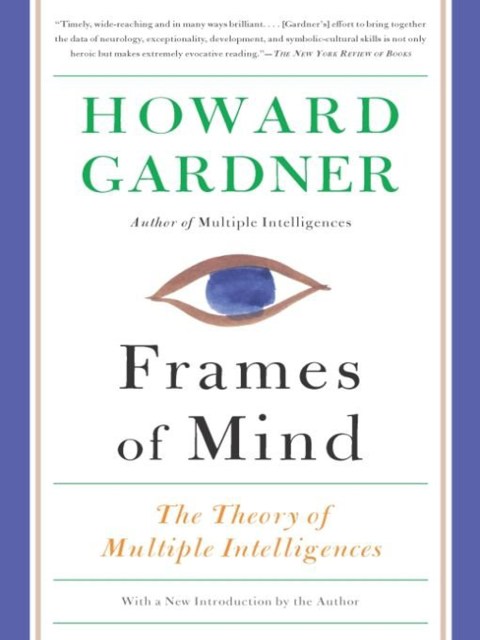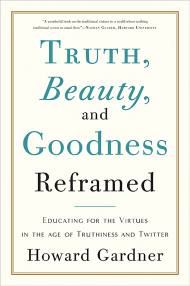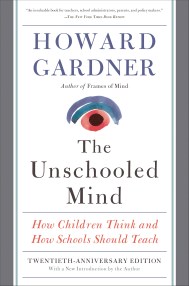By clicking “Accept,” you agree to the use of cookies and similar technologies on your device as set forth in our Cookie Policy and our Privacy Policy. Please note that certain cookies are essential for this website to function properly and do not require user consent to be deployed.
Frames of Mind
The Theory of Multiple Intelligences
Contributors
Formats and Prices
- On Sale
- Mar 29, 2011
- Page Count
- 528 pages
- Publisher
- Basic Books
- ISBN-13
- 9780465024346
Price
$17.99Price
$22.99 CADFormat
Format:
Buy from Other Retailers:
What do we mean when we call someone smart? That they are good at math and got a high score on the SAT? That they learn languages easily? Those traits might be what comes to mind first: they are what underly psychology’s classic definition of intelligence, and what we are told in school that a smart person can do. But they are not the whole story.
As Howard Gardner argues in the groundbreaking classic Frames of Mind, to limit our understanding of intelligence to “book smarts” misses much of what makes human beings amazing. Someone who plays an instrument well is exhibiting intelligence. So, too, someone who knows how to do physical comedy—is their mastery of their movements and the space around them not brilliant? And to have a profound knowledge of their own self, their relationships with others, and relationships between others, too, is to show great intelligence as well.
Gardner calls this the theory of multiple intelligences. But this isn’t just a book for intellectuals who want to argue about what intelligence is, or educators debating how to teach. It is for each of us. In an era of teaching to the test, and increasingly powerful artificial intelligence, Gardner’s work is a celebration of all the ways there are to be human.
-
“The value of Frames of Mind is less in the answers it proposes than in the problems it poses. They are important problems, and time spent thinking about them will be time well spent.”New York Times
-
“Because of [Frames of Mind] Gardner is both lionized and exploited as one of the most famous educational theorists in the world. His notion of multiple intelligences—including the idea that musical, athletic, and other talents are separate from, but as important as, high SAT scores—has inspired scores of books, journal articles, conferences, and lesson plans for public schools.”Washington Post
-
“Mention Howard Gardner's name to a growing cadre of educators and the response verges on the reverence teenagers lavish on a rock star. The cult of Gardner began...with his book Frames of Mind....Teachers say he has liberated them from one-size-fits-all pedagogy and given them a framework to help children develop individual strengths—as artists, scientists, or just good citizens.”Newsweek
-
“Timely, wide-reaching and in many ways brilliant....[Gardner's] effort to bring together the data of neurology, exceptionality development, and symbolic-cultural skills is not only heroic but it makes extremely evocative reading.”New York Review of Books
-
“There’s a book I recommend for everybody: It’s Howard Gardner’s Frames of Mind. It has helped me immensely.”Robert Greene, author of The 48 Laws of Power
-
“Howard Gardner has long been a groundbreaking thinker in psychology. Here he takes a fresh look at his classic Frames of Mind, a widely cited and impactful work on intelligence. I built my own thought on Howard’s remarkable scholarship. Frames of Mind is a master class not just in his thinking about excellence, but in thinking itself.”Daniel Goleman, author of Emotional Intelligence
-
“A landmark book. Readers found themselves in its deeply humanistic message: We can appreciate more in each other and ourselves. Decades later, this work speaks to new challenges. As machines claim the right to do more and more of our thinking, it’s essential that we celebrate the full range of our human potential.”Sherry Turkle, MIT, author of Reclaiming Conversation
-
“Frames of Mind belongs to an exceedingly small category of books that have changed the way we think about an essential topic—in this case human intelligence. It's a testament to the book’s success that today we can hardly remember that, during the long decades before it was published, the idea of a single kind of intelligence, measured by I.Q. tests, was conventional wisdom among educators. Gardner’s work has opened previously restricted opportunities for millions of young Americans.”Nicholas Lemann, staff writer, New Yorker
-
“A mark of an important idea is just how hard it is to imagine being without it. Howard Gardner’s notion of multiple intelligences is just that: For more than forty years, we have recognized that facility with visual-spatial, logical-mathematical, musical-rhythmic (and more) were distinct. With decades of use in education and beyond, how did we ever think (convenience, love of hierarchy?) that we could stamp people with a single number and expect that to characterize intelligence? I look forward to the next decades of these ideas, and to seeing what new forms of intelligence we will recognize and celebrate.”Peter Galison, Harvard University
Newsletter Signup
By clicking 'Sign Up,' I acknowledge that I have read and agree to Hachette Book Group's Privacy Policy and Terms of Use






